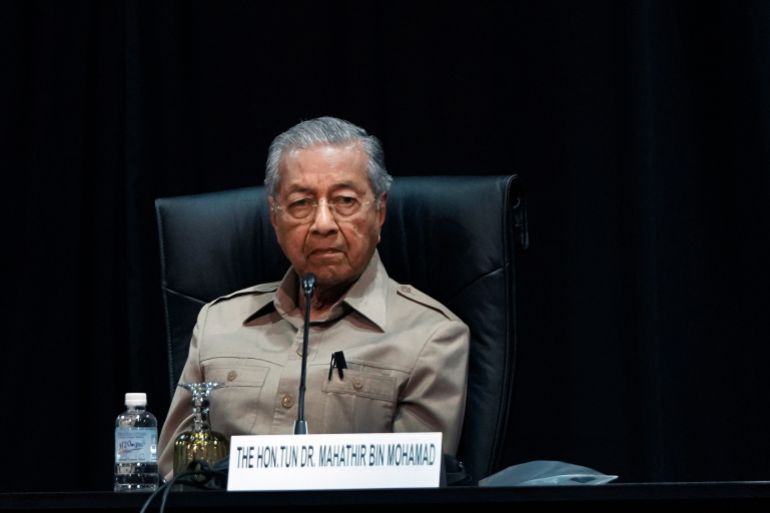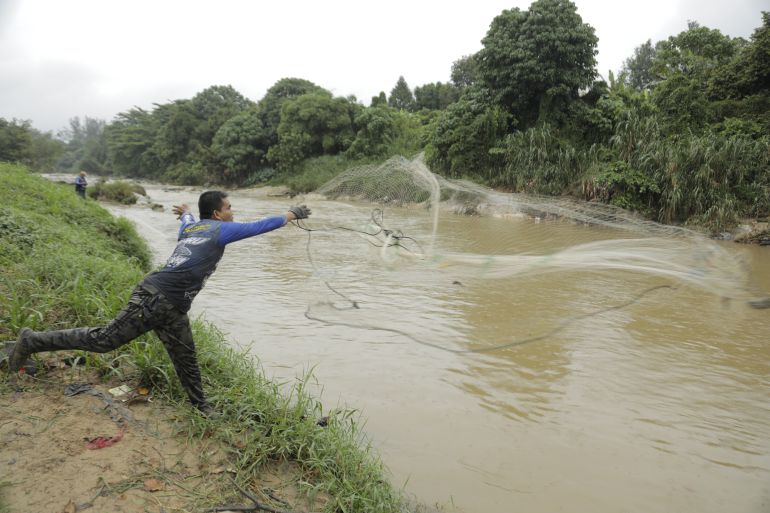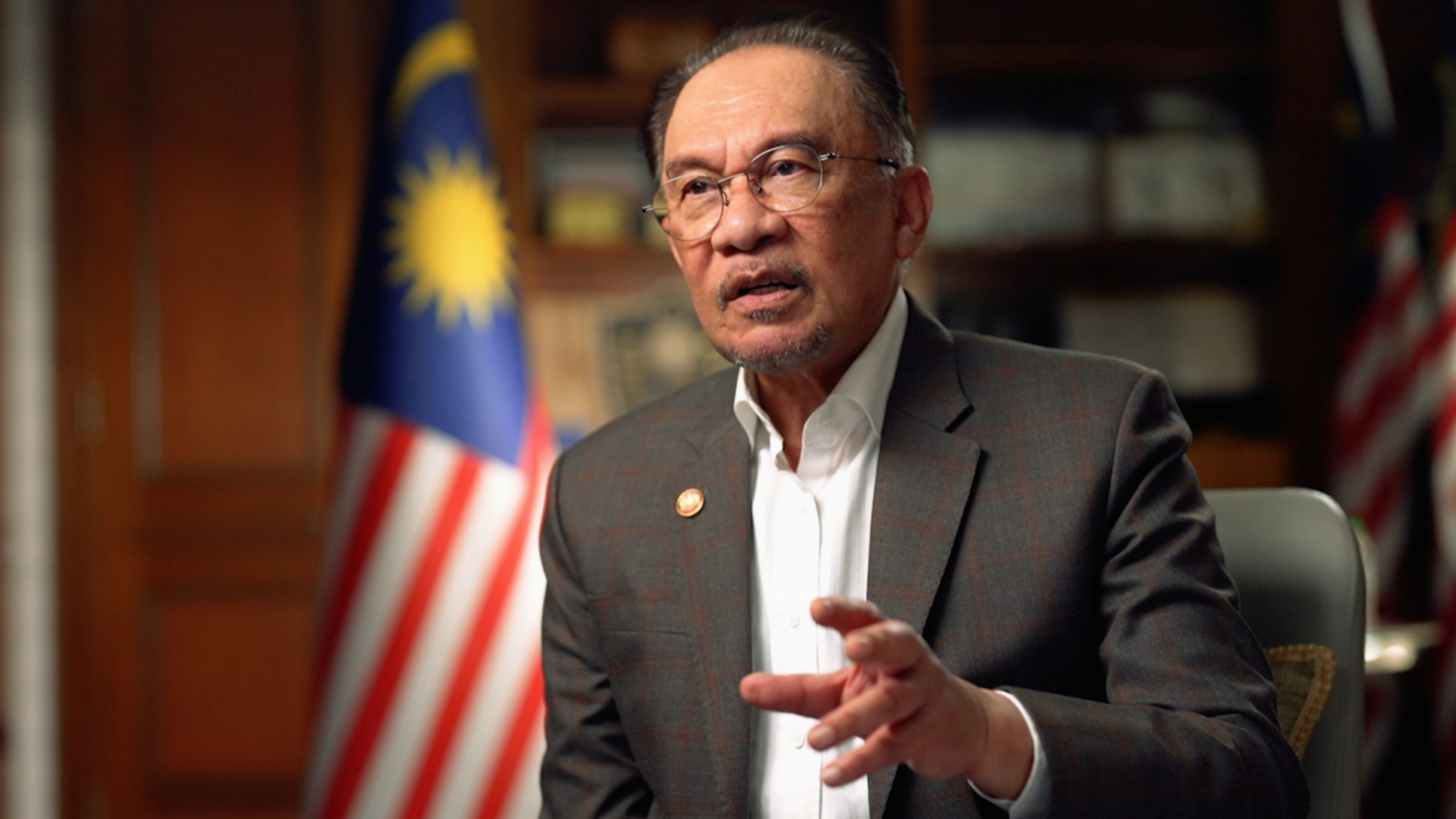Malaysia’s Mahathir at 100: Israel’s genocide in Gaza will not be forgotten | Israel-Palestine conflict News
Putrajaya, Malaysia – When Malaysia’s former Prime Minister Mahathir Mohamad turned 100 earlier this year, he marked his birthday by following a lifelong routine of discipline: he ate little, worked a lot, and did not succumb to the lure of rest.
“The main thing is that I work all the time. I don’t rest myself,” Mahathir told Al Jazeera.
Recommended Stories
list of 4 itemsend of list
“I am always using my mind and body. Keep your mind and body active, then you live longer,” he said.
From a desk at his office in Putrajaya city, south of the capital, Kuala Lumpur, he spent his centenary like most days: penning his thoughts on the Malaysian economy, the country’s political situation and unfolding world events, particularly the situation in Gaza.
Sitting down with Al Jazeera for an interview after recovering from a spell of exhaustion around the time of his birthday, Mahathir predicted that Israel’s ruthlessness against the Palestinian population of Gaza would be etched into world history.
Israel’s killing of nearly 66,000 Palestinians in Gaza, the majority women and children, will be remembered for generations, possibly for “centuries”, Mahathir said.
“Gaza is terrible. They killed pregnant mothers… babies just born, young people, boys and girls, men and women, the sick and the poor… How can this be forgotten?” he asked.
“It will not be forgotten for maybe centuries,” Mahathir said.
Describing the war in Gaza as a genocide that parallelled the killing of Muslims during the war in Bosnia in the early 1990s and the Jews by Nazi Germany during World War II, Mahathir said he was confounded that the people of Israel, who had experienced genocide, could, in turn, perpetrate a genocide.
“I thought people who suffered like that would not want to visit it on other people,” he said. Victims of a genocide should “not want to wish their fate to befall other people”.
However, in the case of Israel, he was wrong, he said.

At the height of his power in the 1980s and 1990s, Mahathir earned a reputation on the world stage as an outspoken voice for the Global South, and a vocal critic of Western imperialism and its contemporary exploitation of developing countries through flows of financial capital.
A staunch and lifelong supporter of the Palestinian cause, Mahathir was also roundly criticised for making “anti-Semitic” statements alongside his tirades against the West, particularly the United States.
But, as he told Al Jazeera, he had sympathised deeply with the Jewish people when the horrors of the Nazis became known after World War II.
Israelis, he now says, “did not learn anything from their experience”.
“They want the same thing that happened to them, they want to do it to the Arabs,” he said.
Now, the only “reasonable” way to address the conflict between Israel and the Palestinian people is to implement a two-state solution, he added. But Mahathir said that such a solution – which received a major boost when Palestinian statehood was recently recognised by Australia, Belgium, Canada, France and the United Kingdom, among other countries – is still a very long way off, and he would not live to see it.
“In my lifetime, no. Too short a time,” he said.
China: ‘Number one country in the world’
A survivor of three heart attacks who pulled off a stunning political comeback in Malaysian public life when he was over 90 years of age, Mahathir held power for a combined total of 24 years, and earned himself what is likely to be the unassailable title as Malaysia’s longest-serving leader.
When he was born on July 10, 1925, in the northern Malaysian state of Kedah, the king of England was George V, the grandfather of the late Queen Elizabeth II, and Malaysia was a British colony known as Malaya.
He entered politics in the 1960s and became prime minister from 1981 to 2003 before stepping down, for the first time.
He then made an astonishing return to power in 2018, when he led a coalition of opposition parties to beat the long-governing Barisan Nasional party to be re-elected prime minister at the sprightly age of 92, becoming the world’s oldest leader as a result.
But he stepped down under a cloud for the last time in 2020 after losing support due to political machinations from inside his own political party, Bersatu.
A medical doctor by training, even Mahathir’s critics acknowledged that he laid the economic foundations that transformed Malaysia’s agricultural economy of the 1960s into the modern industrialised state of today, with the iconic twin Petronas Towers crowning the skyline of its thriving modern capital city, Kuala Lumpur.
Despite having lived past the age when most politicians would have retreated from the spotlight, Mahathir at 100 remains as vocal, sharp and acerbic as ever.
He also had some surprising memories of a bygone China and predictions about the future of the United States to share.

Among his prized recollections are his impressions of visiting China in the 1970s, when it was “very poor” and there were few cars on the streets.
Being Malaysia’s deputy prime minister at the time, authorities in Beijing rolled out the red carpet and their “Red Flag” model car to chauffeur him around, he said.
“It was a very big Chinese car which China produced themselves. They called it The Red Flag,” Mahathir said, recounting how that vehicle was among the first to be independently produced by the Chinese.
Fast forward to today, China’s economy has come a very long way, and so too has its thriving car industry, which is giving Western-produced cars a run for their money, particularly with electric vehicles.
China’s surpassing of the US to become the “number one country in the world” is inevitable, he said, due to its huge domestic market and hard-working population.
“It will take China 10 years to catch up with America. After that, China will overtake America,” Mahathir said.
“China by itself is bigger than Europe and America. It’s a huge market. It is quite rich. And Chinese people are very smart in business,” he said, recounting how, as a youth, he witnessed new Chinese migrants to Malaysia take on “very heavy work” to earn a living. Within a generation or two, those families had managed to improve their lives, give their children a good education, and some of their grandchildren had gone on to become quite wealthy.
‘America will not be able to compete with the rest of the world’
Contrasting contemporary China with the US under the presidency of Donald Trump, Mahathir said that Trump’s “tariff war” was “very damaging”, and his plans to bring production back to the US would increase costs and pave the way for China’s further rise.
“[Trump] wants companies to shift their factories to America. The wages are very high there. The work attitude there will be very different from Chinese workers, who can stay for hours and do the work,” he said.
“American workers cannot do that. Anything produced in America in the future, if they do move the factories there, will be costly,” he added.
“America will not be able to compete with the rest of the world.”
Importantly, Trump does not have the time to follow through on his promised economic vision, as it would take a minimum of three to eight years to move manufacturing facilities to the US, he said.
“And Trump will not be president any more after three years,” he added.
Despite being 100 years old , Mahathir walks unaided, exercises daily, goes to work every day and receives visitors.
He uses social media and travels outside of Malaysia whenever he receives invitations to be a guest speaker.
The key to longevity, Mahathir said, is to stay physically and mentally active and not overeat .
“Don’t eat so much,” he told Al Jazeera.
“My mother’s best advice to me was, ‘When the food tastes nice, stop eating.’”




![[Patrick Lee/Al Jazeera]](https://www.occasionaldigest.com/wp-content/uploads/2025/05/tossnet001-_MGL1045-1747378450.jpg)
![[Patrick Lee/Al Jazeera]](https://www.occasionaldigest.com/wp-content/uploads/2025/05/haziq001-_MGL0629-1747379939.jpg)
![[Patrick Lee/Al Jazeera]](https://www.occasionaldigest.com/wp-content/uploads/2025/05/posing001feb-_MGL0615-1747378384.jpg)
![[Patrick Lee/Al Jazeera]](https://www.occasionaldigest.com/wp-content/uploads/2025/05/holdingfish002_MGL0621-1747378404.jpg)
![[Patrick Lee/Al Jazeera]](https://www.occasionaldigest.com/wp-content/uploads/2025/05/satay001-_MGL1170-1747378419.jpg)
![[Patrick Lee/Al Jazeera]](https://www.occasionaldigest.com/wp-content/uploads/2025/05/cutting001-_MGL0855-1747378472.jpg)
